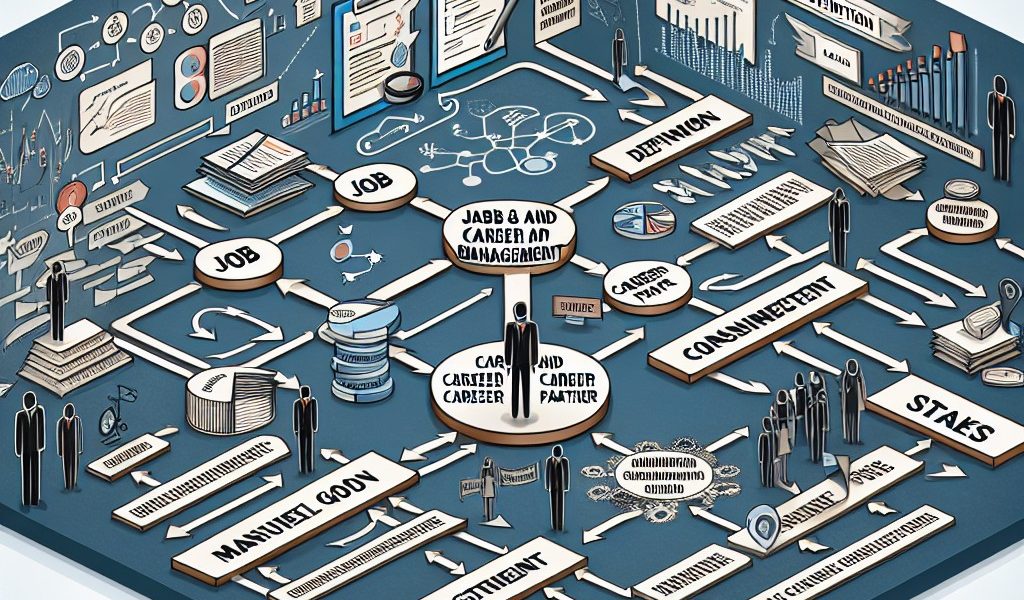Mastering Your Future: Defining and Navigating Job and Career Management (GEPP)
What is Job and Career Path Management (GEPP)?
Job and Career Management (GEPP) is a set of methods, tools and practices that aim to support employees throughout their professional career. It allows companies to anticipate their future skills needs in the face of economic, technological and even environmental developments.
Importance of GEPP
Faced with constant changes in the labor market, the GEPP is essential to ensure the match between the skills available in a company and its current and future needs. By contributing to better talent management, it promotes the professional development of employees as well as the overall performance of the company.
Historical context
The concept of GEPP has its origins in the 2000s with the emergence of collective awareness of the importance of continuous skills development. The Borloo law in 2008 marked an important turning point in terms of legislative developments on the subject.
Legal framework in France
French legislative evolution continued with several successive reforms until reaching its peak with the Macron ordinances of 2017. The latter introduced the term GEPP and reinforced the importance of social dialogue in terms of job and career management. professionals.
Methodology
The establishment of a GEPP goes through different key stages, in particular:
- Identifying the company’s future skills needs
- Diagnosis of existing skills within staff
- Defining an action plan to fill the gaps between needs and available resources
- Regular monitoring of the implementation of the action plan and evaluation of the results obtained.
Benefits of GEPP
Some of the main advantages offered by a structured approach to GEPP include:
- Improving the overall performance of the company through a better match between its needs and its human resources;
- Reduction of HR costs linked to recruitment, training or even unwanted departures;
- Increasing the satisfaction and professional well-being of employees, thus promoting their commitment to their employer.
Case studies with successes and failures
Various companies have been able to successfully implement a GEPP approach, particularly in the industrial or service sectors. Conversely, some organizations have failed to take full advantage of this approach, often due to a lack of clarity in defining objectives or insufficient monitoring.
Adaptation to different sectors
The GEPP can be adapted to the specificities of each sector of activity. Thus, companies in the industrial sector will be able to focus more on the acquisition and development of technical skills, while those in the tertiary sector will attach particular importance to relational and commercial skills.
Criticisms and challenges
The implementation of a GEPP approach may raise certain criticisms or face various challenges:
- The risk of excessive bureaucratization;
- Difficulty in accurately anticipating future skills needs;
- The challenge of maintaining acquired skills throughout a professional career.
Role in the face of economic and technological changes
In a context marked by the rapid emergence of new technologies such as artificial intelligence (AI) or the challenges linked to climate change, the GEPP plays a crucial role in helping companies adapt quickly and effectively. By anticipating these developments, they can ensure their sustainability while offering stimulating professional opportunities to their employees.

